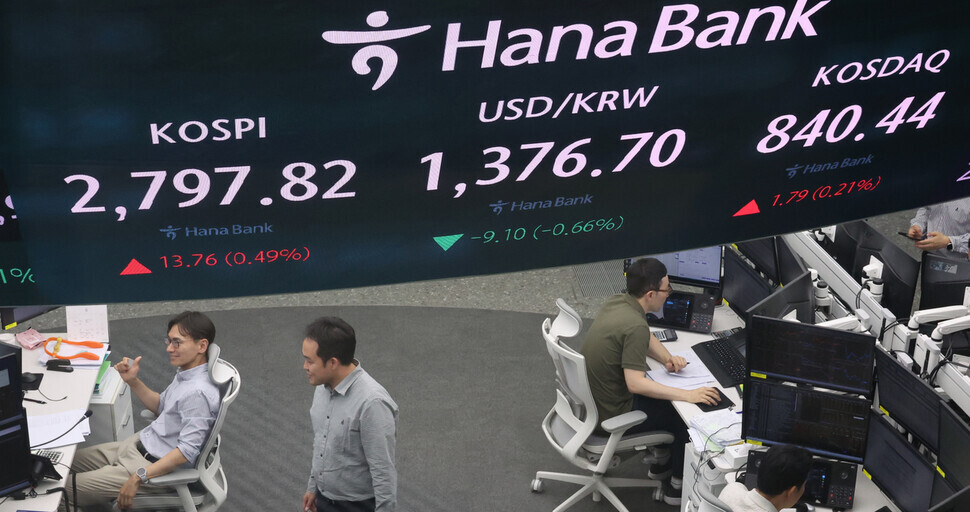
SEOUL – Foreign investors have returned to the South Korean stock market, snapping a nine-month selling streak in May with a significant net purchase. This shift signals a potential turning point for the KOSPI, which has grappled with substantial capital outflows over the past year.
According to the Korea Exchange and Yonhap Infomax, foreign investors net bought KRW 1.1411 trillion on the KOSPI in May, ending a prolonged sell-off that began in August last year. Over those nine months, foreigners offloaded more than KRW 38 trillion in Korean equities. This exodus nearly matched the record KRW 41 trillion net sell seen during the 11-month period of the 2007-08 global financial crisis, marking the second most intense selling spree since March 2020.
The return of foreign capital sparks optimism that sustained inflows could provide a robust tailwind for the KOSPI, which has recently shown an upward trend. The key question for investors now is whether this buying momentum will last.
Analysts are largely positive. Lee Jae-man, a researcher at Hana Financial Investment, anticipates a long-term decline in the dollar index and interest rates, particularly under a potential Trump administration, creating a favorable environment for KOSPI growth. He emphasizes the importance of selectively investing in companies favored by foreign net buying. Cho Chang-min of Hyundai Motor Securities also projects continued foreign interest, citing a stabilizing Won/Dollar exchange rate and reduced volatility. He notes that the foreign ownership ratio in KOSPI, at 31.78% by the end of May (down from 35.64% last July), is near historical lows, making Korean assets attractive.
The recent resurgence in foreign interest is multifaceted. Beyond macro trends, the South Korean government's "Corporate Value-up Program," launched earlier this year to enhance shareholder returns and address the long-standing "Korea Discount," has played a significant role. This initiative aims to encourage companies to improve corporate governance and distribute more profits to shareholders, thereby boosting valuations and attracting global capital.
In May, foreign investors heavily concentrated their purchases on select large-cap stocks. SK Hynix (KRW 1.4770 trillion net buy) led the charge, reflecting strong demand for High Bandwidth Memory (HBM) chips, crucial for artificial intelligence applications, where SK Hynix is a market leader. Other notable buys included Doosan Enerbility (KRW 522.4 billion), Hyosung Heavy Industries (KRW 391.5 billion), Samsung Heavy Industries (KRW 248.8 billion), and HD Hyundai Electric (KRW 235.0 billion).
Sector-wise, Machinery, Utilities, Hotels/Leisure, Cosmetics/Apparel, and Shipbuilding saw the strongest foreign buying intensity. Lee Jae-man further identified sectors with high potential for continued foreign net buying, including Steel, Automobiles, Software, Construction, Chemicals, and Semiconductors.
However, the picture is not uniform across all sectors. While foreign investors turned net buyers on the KOSPI overall, they continued to sell Samsung Electronics (KRW 1.2709 trillion net sell) in May. This pushed foreign ownership in the tech giant down to the 49% range from 56% in July last year. This divergence highlights foreign investors' selectivity, possibly favoring SK Hynix's AI-driven growth trajectory over Samsung's broader, more diversified, and sometimes slower-recovering memory and foundry businesses.
The debate continues on whether "empty" stocks, still largely net sold by foreigners, will join the rally. Cho Chang-min suggests that if the net buying stance continues, foreigners might target "the most heavily emptied sectors," such as Chemicals, IT Home Appliances, Automobiles, and Semiconductors. He argues that these sectors, despite previous heavy selling due to tariff concerns, now offer attractive valuation levels, reducing entry barriers for foreign capital.
Conversely, Park Seung-young, a researcher at Hanwha Investment & Securities, notes that current foreign buyers are "active" investors, meticulously scrutinizing performance and news. He believes "passive" capital inflows will only materialize when tariff-related uncertainties further ease and the dollar definitively weakens. Park advises caution on increasing exposure to Samsung Electronics, secondary batteries, and automobiles, suggesting that their weighting might even be further reduced for another month, given that exchange rates, earnings, and market events are not yet fully supportive.
The ongoing shifts in foreign capital flows underscore a nuanced investment landscape in South Korea, driven by both global macro trends and specific corporate fundamentals, particularly as the "Corporate Value-up Program" gains traction and AI-driven demand reshapes the tech sector.
[Copyright (c) Global Economic Times. All Rights Reserved.]






























